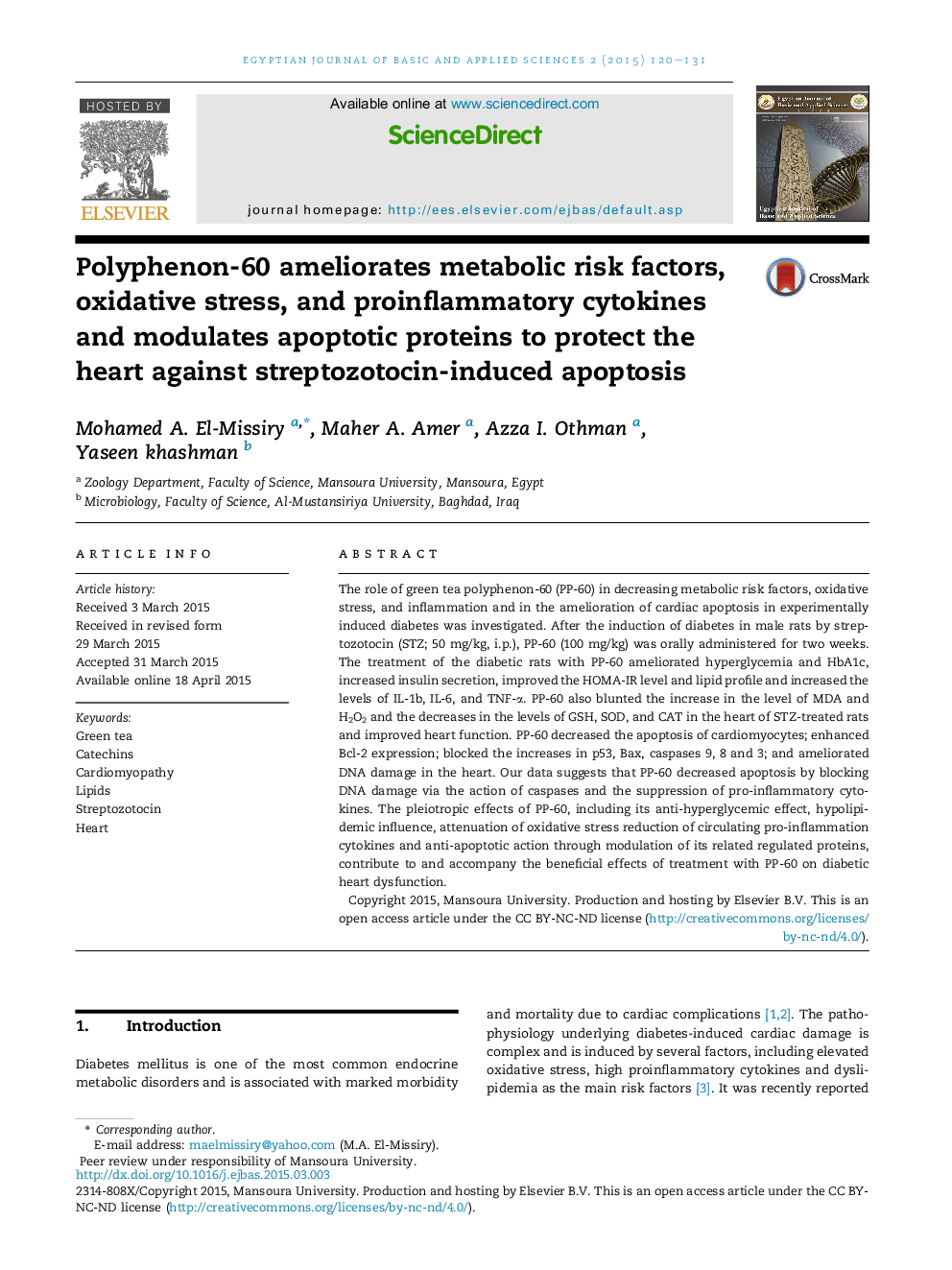| Article ID | Journal | Published Year | Pages | File Type |
|---|---|---|---|---|
| 558985 | Egyptian Journal of Basic and Applied Sciences | 2015 | 12 Pages |
The role of green tea polyphenon-60 (PP-60) in decreasing metabolic risk factors, oxidative stress, and inflammation and in the amelioration of cardiac apoptosis in experimentally induced diabetes was investigated. After the induction of diabetes in male rats by streptozotocin (STZ; 50 mg/kg, i.p.), PP-60 (100 mg/kg) was orally administered for two weeks. The treatment of the diabetic rats with PP-60 ameliorated hyperglycemia and HbA1c, increased insulin secretion, improved the HOMA-IR level and lipid profile and increased the levels of IL-1b, IL-6, and TNF-α. PP-60 also blunted the increase in the level of MDA and H2O2 and the decreases in the levels of GSH, SOD, and CAT in the heart of STZ-treated rats and improved heart function. PP-60 decreased the apoptosis of cardiomyocytes; enhanced Bcl-2 expression; blocked the increases in p53, Bax, caspases 9, 8 and 3; and ameliorated DNA damage in the heart. Our data suggests that PP-60 decreased apoptosis by blocking DNA damage via the action of caspases and the suppression of pro-inflammatory cytokines. The pleiotropic effects of PP-60, including its anti-hyperglycemic effect, hypolipidemic influence, attenuation of oxidative stress reduction of circulating pro-inflammation cytokines and anti-apoptotic action through modulation of its related regulated proteins, contribute to and accompany the beneficial effects of treatment with PP-60 on diabetic heart dysfunction.
